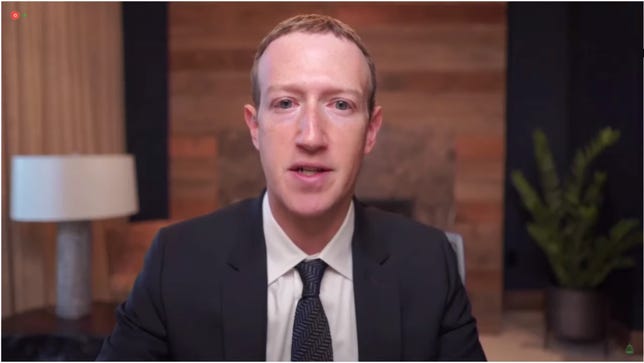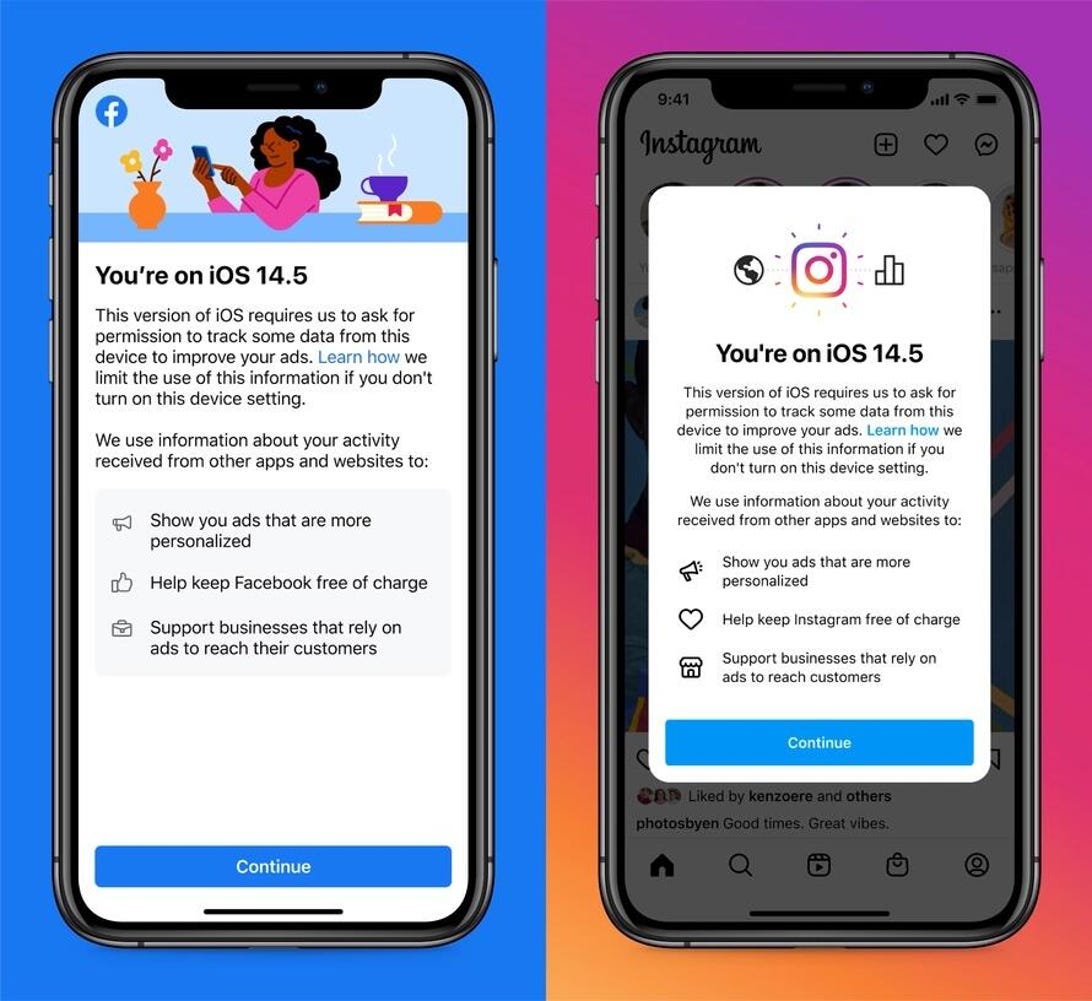Apple’s Privacy Battle With Facebook Just Became All-Out War

Apple and Facebook’s relationship status has gone way beyond “it’s complicated.”
James Martin/CNETApple and Facebook may be two of tech’s biggest companies, but on the surface they seem very different. Apple rang up most of its $274.5 billion in sales last year pushing iPhones, iPads, Mac computers and AirPods headphones. Facebook, meanwhile, sells few devices, and instead made nearly all its $85.9 billion from targeted online advertising.
But there is one area where they cross paths, and now are crossing swords: the privacy of the people who use their products. And it’s led to bitter words between their top execs.
On Monday, Apple released an update for its iPhones and iPads that strikes deep at the advertising world. The new operating software, with the relatively benign names iOS 14.5 and iPadOS 14.5, requires that app developers explicitly ask for permission to track users’ behavior across the Apple’s App Store and internet. That strikes deep at Facebook’s business, which has been built over the past decade on technology designed to do exactly that, whether its users know it or not.
What may have started as a policy disagreement has turned into one of Silicon Valley’s biggest feuds, with Apple CEO Tim Cook declaring that privacy should be a human right, and Facebook CEO Mark Zuckerberg saying that Apple’s demand will hurt small businesses and raise costs across the internet.
“Every business starts with an idea, and being able to share that idea through personalized ads is a game changer for small businesses,” Facebook said in a blog post in February. “Limiting the use of personalized ads would take away a vital growth engine for businesses.”

Mark Zuckerberg has had to answer for Facebook’s actions on Capitol Hill.
Sarah Tew/CNETCook dismissed those concerns in an interview with The New York Times earlier this month. “We know these things are flimsy arguments,” Cook said. “I think that you can do digital advertising and make money from digital advertising without tracking people when they don’t know they’re being tracked.”
Apple and Facebook continued their sniping on Monday. Facebook shared a copy of the alert it’ll tell users Apple “requires” as part of its new privacy push, while Apple released a video on YouTube saying it’s fighting against “apps that have trackers embedded in them that take more data than they need.”
Their war of words marks a new low between two of the world’s largest companies. Over the years, Apple’s moved to sell itself as a beacon of privacy in a surveillance-rich world. The company regularly highlights how it builds security and the choice of anonymity into its products. Its newest AirTag tracking devices, announced last week, rely on encrypted communication, designed to ensure even Apple can’t use its products to identify where people or their devices are.
Apple’s approach has butted heads with Zuck & Co., whose comparatively loose approach to user data has led to government investigations and fines over massive privacy scandals.
Apple and Facebook haven’t just argued over philosophy. Apple publicly criticized Facebook in its presentations in 2018, for example, showing off a new Screen Time feature, revealing how often people use various apps. In the demo, Facebook was shown as the ultimate time suck. Apple also announced new features for its Safari browser, saying it would be “shutting down” user tracking through Facebook’s ubiquitous Like buttons around the web. This all came shortly after Facebook’s Cambridge Analytica privacy scandal exploded into public view.
Behind the scenes, Cook appears to have been unable to forge the relationship Apple co-founder Steve Jobs had with Zuckerberg more than a decade ago. Back then, the two tech titans were known to have broken bread and taken walks.
“I once asked Jobs who [he] admired in [Silicon] Valley,” Steve Jobs biographer Walter Isaacson told The Washington Post in 2012. “Mark’s was the first name on his lips.”

How Facebook’s responding to iOS 14.5 in its iPhone and iPad apps.
FacebookCook, meanwhile, has had a reportedly more tense relationship with the Facebook head. During a meeting in 2019, Zuckerberg asked Cook for advice over how to handle the Cambridge Analytica scandal, during which the private data of more than 50 million Facebook users was leaked to a voter profiling firm connected to Donald Trump’s presidential campaign.
“Cook responded acidly that Facebook should delete any information that it had collected about people outside its core apps,” The New York Times reported Monday. “By urging Facebook to stop gathering that information, Cook was in effect telling Zuckerberg that his business was untenable. He ignored Cook’s advice.”
READ MORE HERE
